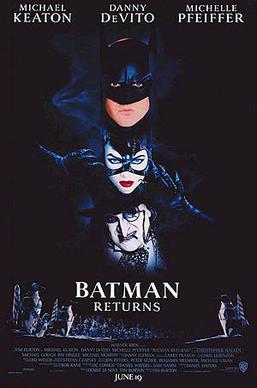It’s never a bad time to be a Batman fan, but the months leading up to a new Batman movie are (usually) an especially good time. Casting rumors, wondering what villains and allies will appear, checking BOF every chance we get for new looks and information, it’s all part of a great ride. I can’t wait to take it again leading up to a Matt Reeves Batman movie in the near future. It doesn’t get old for me.
At least, it hasn’t yet.
 I know the ride leading up to Justice League was a bumpy one, especially for those that followed via BOF. That’s not because anyone at BOF made it bumpy, mind you. It’s because we could all sense that it wasn’t quite coming together, and we later learned that even WB didn’t know where that ride was going because they were trying to scrape it together as we went along.
I know the ride leading up to Justice League was a bumpy one, especially for those that followed via BOF. That’s not because anyone at BOF made it bumpy, mind you. It’s because we could all sense that it wasn’t quite coming together, and we later learned that even WB didn’t know where that ride was going because they were trying to scrape it together as we went along.
That’s as much as I want to talk about Justice League and ride analogies. Whatever you thought of the movie, no one wants to go through that process again. Even if you liked the movie, you have to admit it’s not a great way to turn out a product, let alone a work of art.
This is where I’m reminded of an important truth, not just in making good art but in life in general: Getting what you want is nice. How you get it is more important. This is a truth that I try to keep in mind regularly. I think it applies to all areas of life. Yes, even fandom, and I think it’s specifically good advice for Batman fans right now.
Allow me to explain…
 We all want great Batman movies and great DC movies in general. And now more than ever, I think we want to be unified around the movies with the characters we love. Justice League didn’t deliver in that respect, but for Batman, this hasn’t been the case since before Batman v Superman, and it only got worse from there. By all accounts, it appears WB has learned from mistakes made during that time and is on track to deliver good movies again.
We all want great Batman movies and great DC movies in general. And now more than ever, I think we want to be unified around the movies with the characters we love. Justice League didn’t deliver in that respect, but for Batman, this hasn’t been the case since before Batman v Superman, and it only got worse from there. By all accounts, it appears WB has learned from mistakes made during that time and is on track to deliver good movies again.
However, it’s important to remember where in the process things went wrong, rather than just looking at the results. WB gave creative control over the DC movie universe to a filmmaker with a vision and a passion for the characters. Zack Snyder had a divisive vision, but a vision nonetheless, and his passion was never a question. Look no further than the most recent success of Aquaman to see that such an approach can work, and when it does, it can produce quality movies that audiences love. We saw the same results with Wonder Woman and Patty Jenkins. And almost a decade ago we got the greatest superhero movie(s) we’ve ever seen thanks to WB’s trust in a visionary filmmaker. The method of trusting a filmmaker with creative control is not the problem. But it is a risk.
And we can’t forget what’s happening on other big screens. Because a whole cinematic universe exists, very successfully, that largely shuns the visionary filmmaker in favor of pre-planned producer-driven approach. Yes, the MCU has movies that showcase distinct director styles, but those are the outliers while the biggest hits are the phase-ending blowouts that are carefully planned and worked toward over several years and movies. And elsewhere, in the Star Wars universe, director leeway has brought financial success along with audience division. Behind the scenes, Star Wars continues to navigate the tension between creative control and a more standardized approach. These are the options before us, as DC fans and Batman fans. Do we want to run the risk of putting all our trust in a filmmaker, or do we want to lay out the parameters and demands of a Batman movie and find directors willing to play along?
 Here’s where I’ll argue something Batman fans may not want to hear: I’d rather get Batman Returns and BvS than another Batman and Robin and Justice League.
Here’s where I’ll argue something Batman fans may not want to hear: I’d rather get Batman Returns and BvS than another Batman and Robin and Justice League.
Batman Returns, if you’ll recall, was Tim Burton given Batman’s world in which to make a Tim Burton movie. BvS was Zack Snyder finally getting the freedom to make his vision of a live-action Dark Knight Returns, filled out with cynicism and deconstruction of superhero myth. But I’ll take these any day over the toy-commercial with stunt casting that was Batman and Robin and the movie-by-committee that was Justice League.
Now to be fair, Batman and Robin and Justice League aren’t the best examples of the “producer-driven” approach, even if they are the only ones with Batman in them. But I’m not in favor of director-driven movies just because I think the alternative will be a disaster. As it should be obvious, director-driven movies can be spectacular disasters too, and Batman is no stranger to those either.
 My reasoning is simple: the ceiling is higher when you give visionary directors leeway to work. You get a Batman Returns, but you also get a Batman Begins. And you let talented creators know that they’ll get a chance to do something special if they come and work for you. Given the upside, I think the risk is more than worth it. It’s harder and riskier, but it has to be. Because it’s not about just doing whatever it takes to get a crowd-pleasing Batman movie to the screen. In order to be great, like we know Batman movies can be, it has to be carefully crafted by someone with the skill and vision to pull it off.
My reasoning is simple: the ceiling is higher when you give visionary directors leeway to work. You get a Batman Returns, but you also get a Batman Begins. And you let talented creators know that they’ll get a chance to do something special if they come and work for you. Given the upside, I think the risk is more than worth it. It’s harder and riskier, but it has to be. Because it’s not about just doing whatever it takes to get a crowd-pleasing Batman movie to the screen. In order to be great, like we know Batman movies can be, it has to be carefully crafted by someone with the skill and vision to pull it off.
Back to getting what we want. What we want, if I can speak for Batman fans, are movies that showcase all the things we love about him. He’s the coolest hero there is. He’s got the coolest car and the best look. He’s the World’s Greatest Detective and the most skilled fighter around. The best villains, allies, and stories are all part of his world. And he’s a perfect distillation of humanity: driven to his peak by his moral convictions and overcoming tragedy.
Some of us argue over the details from there (like his membership in the Justice League, for instance) but I think we largely agree on what makes him awesome, and that’s what we want to see when he’s on the big screen.
So do we want a committee and a director for hire to crank out a Batman movie that just tries to check all these boxes? Or should we be willing to trust someone talented to come along and show us something we couldn’t have known to ask for, but end up loving?
Here’s where, to me, I think that important truth I mentioned earlier is worth remembering. Getting a Batman movie that checks these boxes is nice. But if we trust the process of letting a talented visionary execute their vision, then we might be in for something really special. You can’t shortcut your way to something really special. You can’t produce a great work of art just by following audience demands and market research. There are risks, yes, in trusting talented filmmakers to deliver their visions. But that trust is what makes that all-time great work of art possible.
 WB seems to have learned this by giving Matt Reeves plenty of room to work. This is good news, both for the immediate and long-term future of Batman on the big screen. WB, please remember your successes: your DC universe is vast and ripe with great stories. Let talented directors make the most of their territory, collaborating where they want to, knowing that they have your support. Trust the process that gave you The Dark Knight trilogy, Wonder Woman, and now Aquaman. You’ll run the risks, yes, of trusting filmmakers that will let you down. But the great ones, the ones we know and those we don’t yet, will know that WB gives DC movies the best chance to be great. – Trey Jackson
WB seems to have learned this by giving Matt Reeves plenty of room to work. This is good news, both for the immediate and long-term future of Batman on the big screen. WB, please remember your successes: your DC universe is vast and ripe with great stories. Let talented directors make the most of their territory, collaborating where they want to, knowing that they have your support. Trust the process that gave you The Dark Knight trilogy, Wonder Woman, and now Aquaman. You’ll run the risks, yes, of trusting filmmakers that will let you down. But the great ones, the ones we know and those we don’t yet, will know that WB gives DC movies the best chance to be great. – Trey Jackson














